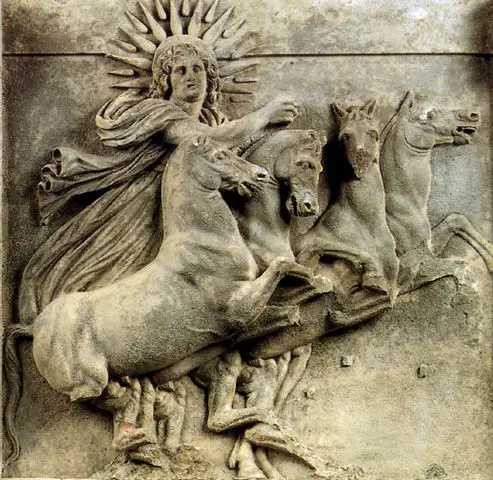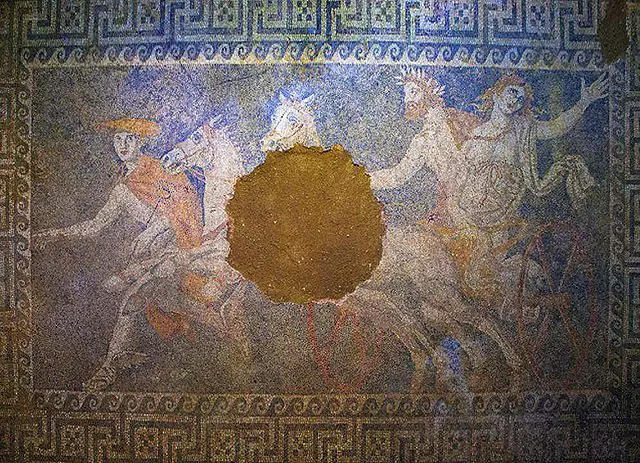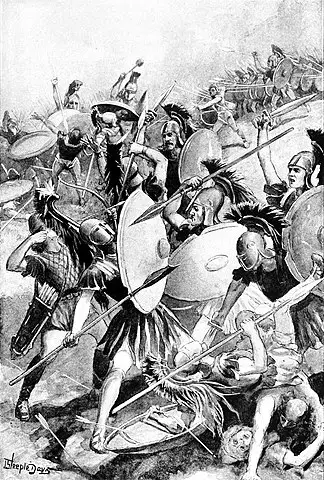
| Date | 431-404 BC |
| Result | Spartan victory, the start of Spartan dominance over Greece |
| Further Reading | The 4 Most Important City-States Of Classical Greece |
After the end of the Greco-Persian wars in 449 BC, there was an uneasy alliance between the Greek city-states. In 431 BC war between the Greek city-states erupted with two factions forming; the Delian League led by Athens and the Peloponnesian League led by Sparta. After 27 years of fighting Sparta would end up winning the Peloponnesian War due to 3 reasons.
Generally speaking, Sparta won the Peloponnesian War against Athens due to 3 major reasons. First, in 430 BC a massive plague hit Athens and cut Athen’s population by almost a third. Second, Athens engaged in a prolonged military campaign in Sicily in 415 that ended horribly for them. Third, in 414 BC the Persian Empire entered into the war on the side of the Spartans.
These 3 reasons allowed Sparta to turn the tide of the war in their favor. Up until this point, the Spartan army was unable to conquer Athens. This was due to the large Athenian walls that surrounded the city. Athens on the other hand was unable to field a large enough army to beat Sparta and her allies. In essence, up until the end the Peloponnesian War was a stalemate.
Here at The History Ace, I strive to publish the best history articles on the internet. If at the end of this article you enjoyed the content then consider subscribing to the free newsletter and share around the internet.
Without further ado, here are the 3 reasons why Sparta won the Peloponnesian War against Athens.
Reason 1: In 430 BC a Massive Plague Struck Athens
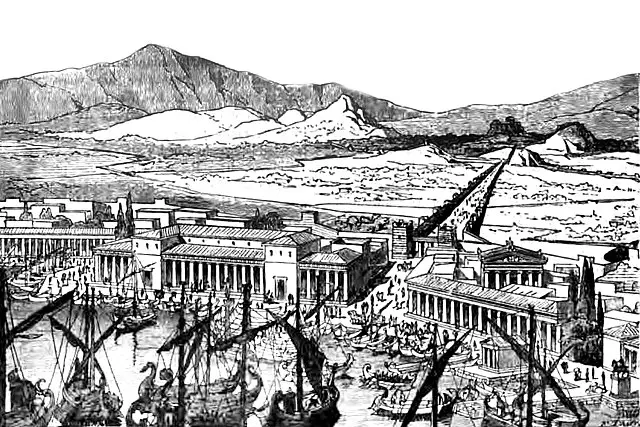
In 430 BC Athens was about to win the war when all of a sudden a plague showed up in the city. Historians are unsure as to what caused this plague but it crippled Athen’s ability to wage war against Sparta and her allies.
For the first year of the conflict, it appeared that Athens was clearly going to beat Sparta. By ravaging the coast of the Spartan homeland the navy of Athens was able to create turmoil and incite rebellion across the Peloponnesian peninsula.
As Athens was on the verge of victory a mysterious disease appeared in the city in 430 BC. This plague came into the city through the port of Athens, Piraeus, and quickly began to make its way across the city. Within 5 years the population of Athens dropped by an estimated 100,000. This means that the total population of Athens declined by an estimated 33-45% between the years of 430-425 BC.
The effects of this plague were widespread. From a complete reform of Athenian society to a restructuring of government the plague of Athens changed everything about the city. However, the largest impact of this plague was the lack of available manpower to form a large enough army to deal with Sparta and her allies.
It would take nearly 15 years before Athens could form a large enough force to leave its high walls and engage in a military campaign. One of the main reasons why Sparta won the Peloponnesian War was because of this mysterious plague that struck Athens in 430 BC.
Reason 2: Athens Engaged in a Military Campaign in Sicily in 415 That Ended Horribly for Them
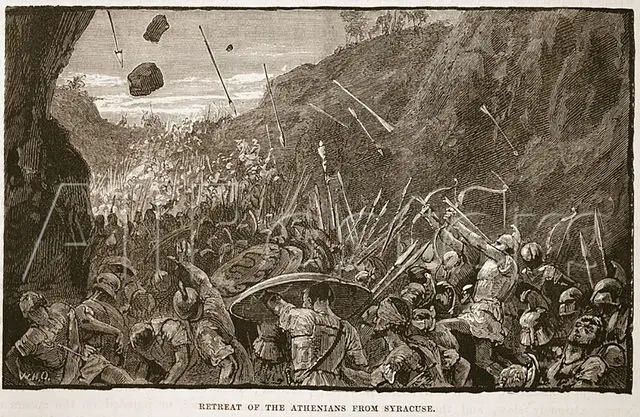
After the Athenian population recovered from the plague of 430-425 BC there were talks to re-engage Sparta and her allies. This decision was brought about by a debate within Athens on if they should support a large army to sail to Sicily and help their allies on the island against the Spartan ally of Syracuse.
There were two major sides to this debate in 420/419 BC. On one hand, the debate stated that Athens should not send a military expedition because of the risk of loss. This was a sound defense as Athens was still recovering from the plague and just started to grow her military again.
The other side of the debate was in favor of sending a massive army and navy to Sicily to conquer the Spartan ally of Syracuse. Here this side of the debate argued of the massive wealth on the island and the fact that Athens already had a large force of allies to help them.
In the end, Athens decided to send a massive military expedition to Sicily to reinforce their allies and engage in a siege of Syracuse. From 415-413 BC Athens would commit 10,000 hoplites, 300 Athenian cavalry, 500 archers, and over 200 triremes. This was a significant portion of Athens’s military.
However, by 413 BC it was clear that Athens would lose to Sparta and her Syracuse ally. After a series of disastrous defeats, differing generals and their strategies, and the arrival of the Spartan general Gylippus Athens was in dire need of help.
On September 13th of 413 BC, the last of the Athenian army (around 13,000 sailors and soldiers) attempted to break out of the Spartan/Syracuse encirclement and flee for their allies in Southern Sicily. This was disastrous and the Athenian army was quickly run down and captured.
In total the failed 415-413 BC Sicilian expedition of Athens resulted in Athens losing a significant portion of her military. This was the turning point in the Peloponnesian War and after this it was clear that Athens would eventually fall to Sparta.
Reason 3: In 414 BC the Persian Empire Entered Into the War on the Side of the Spartans
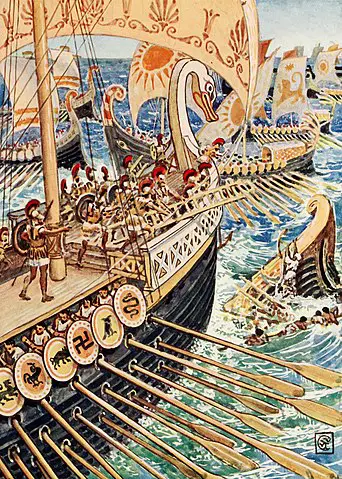
As soon as word of Athen’s disastrous military expedition in 413 BC reached King Darius II the Persian Empire joined into an alliance with Sparta and her allies.
From 425 BC up until 413 the Persian Empire did not challenge Athenian control over the Greek Agenian Sea or attempt to retake cities on the coast of modern Turkey. This was because of several factors but Athenian military dominance was a major part. This all changed in 413 BC with the failure of the Sicilian expedition.
While Sparta could easily defeat Athens in open land warfare it could not conquer the city of Athens due to its large walls and massive population. Even after the failed Sicilian Expedition and plague Athens was still a well-defended city that was reliant upon maritime trade.
This meant that unless Sparta could either destroy the high walls of Athens or build a superior navy to challenge Athens on the open Aegean Sea it was still a stalemate. Athens could simply buy time and build another army while she retreated behind her walls.
The real problem was that Sparta could not afford to raise a large navy. Sparta’s economy was reliant on agriculture and husbandry. While this gave Sparta a surplus of food which helped with raising a large army it did not allow for the capacity to build a good enough navy to challenge Athens.
This however forever changed with the Persian Empire entering into the war on the side of Sparta and her allies (Peloponnesian League). The Persian Empire would finance the Peloponnesian League to create a massive navy. According to the ancient historian Thucydides, Persia turned the tide of the war by financing the entire creation of a large Spartan Navy.
With a large navy and army Sparta would easily conquer Athens. This was possible only with the addition of the Persian Empire coming into the Peloponnesian War on the side of Sparta and her allies.
When Did Athens Fall to Sparta and What Were the Impacts?

The Peloponnesian War remains one of the most important events in classical history. This war was the result of several decades of building up frustration between leading city-states and resulted in permanent changes in the society, military, and political organizations of classical Greece.
After Persia entered into the conflict and funded the creation of a massive Spartan fleet Athens was doomed. In 405 BC Spartan Naval commander Lysander completely destroyed the Athenian navy outside the Dardanelles strait near modern Istanbul in Turkey.
This destruction of the Athenian fleet meant that now Athens would starve as they could no longer protect their ports and grain shipments. As a result in April of 404 BC, Athens would surrender to Sparta. The Peloponnesian War was over and now Sparta controlled the entire Greek world.
The impacts of this war were felt across Greece. First, the Peloponnesian War effectively ended the golden age of classical Greece. This was because the war was so costly that every city-state in ancient Greece was struck with poverty for decades to come.
Second, the structure of ancient warfare forever changed. Before the Peloponnesian War military conflicts were traditionally fought by armies outside of cities and had far fewer casualties. The civilian population was left largely unhurt from the conflict and wars would be over after a couple of seasons. The prolonged Peloponnesian War now caused warfare to be fought on a total war level where every part of society was structured to serve the military’s needs.
Third, the Peloponnesian War marked the end of Athenian democratic dominance in the Greek world. During the war, Athens was ruled by a citizenry population that voted on which actions the city should take. After the war, Sparta would abolish the democracy and put in place a council of thirty members that ruled the government. Even though democracy was restored to Athens in 403 BC after a rebellion Athens never regained its power.
Conclusion
There you have it; the 3 reasons why Sparta won the Peloponnesian War against Athens.
In many ways, this war remains one of the most important in western history. The end of this war saw the loss of Athenian dominance over Greece and the rise of Spartan hegemony. For the next century, Greece would see several wars and eventually a breakdown of Spartan power and the rise of Macedon Power.
I hope you enjoyed this article. Here at The History Ace, I strive to publish the best history articles on the internet. Feel free to sign up for the free newsletter and share it around the web.
Further, you can check out some of the other articles below.
-
3 Reasons Sparta Won The Peloponnesian War Against Athens

The Peloponnesian War remains one of the most imporant wars in classical Greece. Here are the 3 reasons why Sparta defeated Athens in 404 BC

